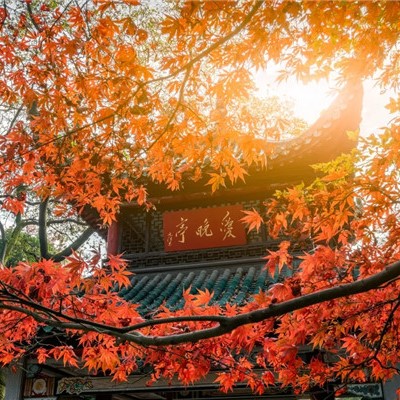知识之链:维斯特洛学士体系深度解析(至第4季)Chains of Knowledge: A Deep Dive into the Maesters of Westeros (Through Seaso
截至第4季,学士仍是王国不可或缺、却并不完美的技术官僚。他们的技艺缝合了医疗、通信、记忆与管理。他们的失误警示着被俘获、自满与无伦理创新的危险。他们的成功则呼唤标准、透明与不确定情境下的勇气。若知识是一条锁链,每一节都由方法与责任合锻。而在维斯特洛,这或许是人们少数愿意看到的锁链。
Chains of Knowledge: A Deep Dive into the Maesters of Westeros (Through Season 4)
知识之链:维斯特洛学士体系深度解析(至第4季)
They wear chains not as shackles, but as a promise—to knowledge, to service, and to the realm.
他们佩戴的锁链不是枷锁,而是承诺——对知识的承诺、对服务的承诺、对王国的承诺。
In a world of swords, oaths, and resurgent magic, the maesters are the quiet infrastructure that keeps everything working—until it doesn’t.
在这个充斥刀剑、誓言与复苏魔法的世界里,学士是支撑一切运转的静默基础设施——直到它失灵为止。
Scope and Method
范围与方法
This guide focuses on the television series canon through Season 4 and avoids later plot developments.
本文以电视剧正史第1至第4季为依据,避免涉及之后的剧情。
Examples and analysis prioritize what the show depicts on screen, noting where broader lore is only implied.
案例与分析以剧中明确呈现为主,并在更宽泛设定仅被暗示之处加以注释。
Where terminology differs from common spellings, “maester” is used as the show’s standard term.
术语采用剧集标准拼写“maester(学士)”,如与常见写法有差异以本剧为准。
The aim is descriptive, analytical, and evidence-led rather than speculative.
文章以描述与证据为主,重视分析而非猜测。
No quotes from the show’s scripts are reproduced to avoid copyright issues.
为避免版权问题,文中不引用剧本原文台词。
What Is a Maester?
学士是什么?
A maester is a sworn, secular scholar trained by the Citadel in Oldtown and dispatched to serve a castle, order, or community.
学士是由旧镇学城培养的世俗学者,立誓后被派往各城堡、组织或社区服务。
They advise lords, treat the sick and wounded, keep records, teach heirs, and maintain the raven-based communications network.
学士为领主出谋划策、医治伤患、保存文书、教导继承人,并维护渡鸦通信网络。
In a feudal society lacking centralized bureaucracy, they function as local administrators of knowledge and logistics.
在缺乏中央官僚体系的封建社会里,学士相当于知识与后勤的地方管理员。
Maesters are expected to be politically neutral and loyal to their duty rather than to their birth families.
学士被期望保持政治中立,对职责忠诚而非对出身宗族忠诚。
The order’s symbolism is the chain around a maester’s neck, forged link by link to represent learned disciplines.
学士的象征是一圈颈链,由一节节链环锻成,代表其掌握的学科。
Unlike knights or priests, maesters ground their authority in learning, procedure, and service.
不同于骑士或祭司,学士的权威来自学识、流程与服务。
Their presence normalizes written records, basic public health, and data-driven decision-making.
他们的存在使书面记录、基础公共卫生与数据导向的决策成为常态。
The Citadel: Institution, Training, and Governance
学城:机构、训练与治理
The Citadel in Oldtown is the maesters’ headquarters, acting as university, guild, and regulatory body.
旧镇的学城是学士总部,兼具大学、行会与监管机构的功能。
Novices study a broad curriculum—medicine, healing herbs, anatomy, mathematics, astronomy, history, ravenry, and more.
学徒学习广泛课程——医学、草药、解剖、数学、天文、历史、驯鸦等。
Progress is assessed by practical tests and scholarship, with each mastered subject earning a metal link for the chain.
进阶通过实践与学术考核,每掌握一门学科便获颈链相应金属链环。
Only after forging enough links does a candidate take vows and accept an assignment to a keep or order.
锻成足够链环后,候选人方可宣誓并接受前往某城堡或组织的派遣。
Senior leadership is attributed to archmaesters and a conclave that sets standards and appoints the Grand Maester.
资深领袖为大学士群体与评议会议,其制定标准并推举御前大学士。
The Grand Maester serves at the capital and sits on the Small Council as the Citadel’s liaison to the crown.
御前大学士在都城任职,进入小议会,充当学城与王权之间的联络人。
The Citadel also manages specialized ravenry and seasonal observations for realm-wide coordination.
学城还负责专业渡鸦系统与季节观测,以协同全境事务。
The system as portrayed emphasizes credentialing, standardization, and inter-castle interoperability.
剧中呈现的体系强调资格认证、标准化与城堡间业务互通。
The Chain and Its Disciplines
锁链与其学科
A maester’s chain is a wearable transcript of competence, forged one link per discipline.
学士的颈链是可穿戴的成绩单,每门学科对应一节链环。
Metals correspond to fields of study, signaling capabilities in medicine, ravenry, astronomy, and beyond.
不同金属对应不同学科,显示其在医学、驯鸦、天文等方面的能力。
While the show does not catalogue every metal-field pairing, it preserves the idea of multi-disciplinary mastery.
尽管剧集未逐一列明金属与学科的对应关系,但明确保留了跨学科精通的理念。
The chain’s weight underscores the ethic that knowledge binds a maester to service.
颈链的重量象征一种伦理:知识将学士与服务相系。
Unlike hereditary symbols, the chain must be earned through study and examination.
不同于世袭标志,颈链必须通过学习与考核亲手“锻造”。
This portable credentialing supports trust when maesters transfer between lords or regions.
这种可携带的资质证明有助于学士在不同领主或地域间流动时获得信任。
The visual language reinforces accountability: each link implies a method, a standard, and an audit trail.
视觉符号也强化了问责逻辑:每一节链环都意味着方法、标准与可追溯性。
Oath, Neutrality, and the Frictions of Power
誓言、中立与权力摩擦
Maesters vow to serve the realm through their assigned lord, prioritizing duty over blood or faction.
学士起誓以所服务的领主为渠道服务全境,将职责置于家族或派系之上。
Neutrality is an ideal, but the show demonstrates how proximity to power can erode it.
中立是理想,但剧中多次展示权力近距离如何侵蚀这一理想。
Grand Maester Pycelle’s deference to Lannister interests illustrates institutional capture.
御前大学士派席尔对兰尼斯特家族的迎合,体现了制度被俘获的风险。
By contrast, Maester Luwin at Winterfell models the ethic of sober counsel and community care.
相较之下,临冬城学士卢温体现了冷静劝谏与社区关怀的职业伦理。
Maester Aemon at the Wall embodies maximal neutrality by choosing duty over a royal bloodline.
长城的学士艾蒙则以王室血脉而仍选择职责,展现了高度的中立信念。
The oath conflicts most under crisis, where political survival pressures overwhelm scholarly independence.
誓言在危机中最受冲击,政治生存压力常常压倒学术独立性。
The order’s credibility hinges on resisting capture while remaining useful to power.
学士团的公信力系于两点:既要抵御被权力俘获,又要对权力保持实用性。
Everyday Functions: The Quiet Infrastructure
日常职能:静默的基础设施
Communications: maesters breed, train, and route ravens to carry written messages across vast distances.
通信:学士饲养、训练并调配渡鸦,在辽阔疆域内传递书信。
Public health and medicine: they set bones, suture wounds, manage fevers, and administer analgesics like milk of the poppy.
公共卫生与医疗:正骨缝合、退热止痛,并使用如“罂粟花奶”般的镇痛剂。
Education: they tutor heirs in letters, numbers, histories, and governance.
教育:教授继承人读写、算术、历史与治术。
Record-keeping: they maintain ledgers, chronicles, maps, and legal documents for continuity of rule.
档案:维护账簿、编年、地图与法律文书,确保统治连续性。
Engineering: they advise on fortifications, waterworks, and logistics under siege or winter stress.
工程:在攻防、供水与冬季压力下,为防御工事与后勤提供建议。
Policy counsel: they translate data and precedent into options that lords can act upon.
政策参谋:将事实数据与先例转化为可执行的治理选项。
Ritual administration: they witness oaths, births, deaths, and send certified notices to other domains.
礼仪行政:见证誓约、出生与死亡,并向他域发送认证告示。
Their utility is cumulative: any one task is small, but together they knit a fractured realm.
这些职能各自微小,却累积成效,将破碎的王国缝合联结。
Maesters and Magic: Skepticism in an Age of Return
学士与魔法:复苏时代的怀疑主义
The show frames maesters as empiricists who favor observation over superstition.
剧集将学士塑造成经验主义者,强调观察胜过迷信。
Maester Luwin explicitly doubts magic while mentoring Bran, prioritizing tangible cures and proofs.
卢温在教导布兰时明确怀疑魔法,更重实证与可见的治疗。
The return of dragons and prophetic phenomena challenges this posture without fully overturning it.
龙的复苏与预兆现象对这种姿态构成挑战,但尚未彻底颠覆。
The contrast with red priests and warlocks highlights a spectrum between ritual power and practical science.
与红袍祭司及夸斯术士的对照显示出从仪式力量到实证科学的一条光谱。
Qyburn occupies a troubling middle ground—experimental, effective, and ethically transgressive.
凯本处在令人不安的中间地带——实验性、有效性与伦理越界并存。
The profession’s skepticism serves as both a safeguard against charlatanry and a blind spot under novelty.
职业怀疑既能防止术士骗术,也可能在新奇现象前形成盲点。
Season 4 shows skepticism fraying as unprecedented cases demand unconventional responses.
至第4季,前所未见的病例逼迫怀疑主义开始松动并寻找非常规应对。
Representative Maesters and Ex-Maesters (S1–S4)
代表性学士与前学士(第1—4季)
Maester Luwin (Winterfell): the archetype of community-first service and measured counsel.
卢温(临冬城):以社区为先、审慎劝谏的典范。
He cares for the Stark children, manages ravens, and maintains order during political upheaval.
他照料史塔克子女,管理渡鸦,并在政局动荡时维持秩序。
He rejects magic as a practical stance, yet dies enabling Bran and Rickon’s escape.
他以务实姿态否定魔法,却最终为布兰与瑞肯的逃生献身。
His arc showcases the maester’s role as moral ballast under collapsing authority.
其故事展示了学士作为权威崩塌时的道德压舱石。
Medical scenes with Luwin reveal field medicine limits in siege and arson contexts.
有关卢温的医疗场景揭示了围城与纵火背景下战地医疗的局限。
He embodies the oath’s best reading: duty that is local, human, and steady.
他代表誓言的最佳阐释:扎根地方、面向人的、稳定的职责。
Grand Maester Pycelle (King’s Landing): public humility masking partisan servility.
御前大学士派席尔(君临):公开的谦卑掩饰着对派系的逢迎。
He postures as frail but reveals vigor in private, signaling calculated self-presentation.
他在众前装作羸弱,却在私下展现健壮,显示刻意的人设经营。
His counsel tracks Lannister priorities, undermining the ideal of Citadel neutrality.
他的建议紧贴兰尼斯特优先事项,削弱了学城中立的理想。
Interactions with Tyrion expose his information brokerage and selective memory.
他与提利昂的互动暴露其信息中介角色与选择性失忆。
His presence on the Small Council demonstrates institutional capture risks.
其在小议会的存在体现了体制被俘获的风险。
Pycelle is a cautionary tale: expertise without independence becomes a tool.
派席尔提供一个警示:缺乏独立性的专家易沦为工具。
Maester Aemon (Castle Black): duty over dynasty amid existential threats.
艾蒙(黑城堡):在存亡之际将职责置于王朝之上。
Blind and aged, he still coordinates ravens, advises commanders, and counsels restraint.
身盲年迈,他仍协调渡鸦、向指挥官出谋划策,并劝诫克制。
His Targaryen birth, disclosed to Jon Snow, sharpens the choice between blood and oath.
他向琼恩·雪诺揭示的坦格利安出身,使“血脉与誓言”的抉择更为尖锐。
Aemon’s sober analysis helps the Watch navigate famine, mutiny, and war.
艾蒙的冷静分析帮助守夜人应对饥馑、哗变与战争。
He models the profession’s highest calling under minimal resources and maximum need.
他在资源极少、需求极大的处境中演示了职业的最高召唤。
His arc validates the maester as a strategic, not just technical, asset.
他的故事证明学士不仅是技术资产,更是战略资产。
Maester Cressen (Dragonstone): terminal resistance to zealotry.
克雷森(龙石岛):对狂热主义的最后抵抗。
He opposes Melisandre’s influence and attempts a mutual-poison gambit to save his lord.
他反对梅丽珊卓的影响,并以同死毒酒试图挽救其主君。
The failed assassination underscores limits of aged bodies and rational plans against faith-fueled actors.
刺杀失败凸显了年迈之躯与理性计划在信仰加持者面前的局限。
Cressen’s death is dignified but ineffective, dramatizing institutional eclipse.
克雷森之死体面却无效,戏剧化地呈现了制度的日蚀。
His toolkit was medicine and counsel; the opponent’s was prophecy and fire.
他的工具是医术与劝谏;对手的工具是预言与火焰。
The clash sets the board for science-religion tension in later conflicts.
这场冲突为之后的科学与宗教张力奠定了基调。
Qyburn (ex-maester): innovation divorced from ethics.
凯本(前学士):脱离伦理的创新。
Stripped of his chain for human experimentation, he persists as a practitioner outside formal oversight.
因活人实验而被剥夺颈链后,他仍在体制外继续行医。
He treats grievous wounds and undertakes extreme procedures the Citadel would forbid.
他治疗重创并实施学城所禁的极端手段。
His rapport with power brokers grants resources in exchange for outcomes.
他与权势者的良好关系以结果换取资源。
By Season 4, he is already positioned as a consequential fixer in the capital.
至第4季,他已在都城站稳脚跟,成为重要的“解决者”。
Qyburn forces a question the order must answer: Is efficacy enough without accountability?
凯本逼出一个学士体系必须面对的问题:没有问责的有效是否足够?
Methods and Materials: What the Show Lets Us See
方法与材料:剧中所见
Analgesia and sedation: “milk of the poppy” appears as a standard for pain control.
镇痛与镇静:“罂粟花奶”作为常用止痛镇静剂多次出现。
Antisepsis by approximation: boiling, vinegar, and clean cloths imply basic infection control.
近似的消毒法:煮沸、醋与洁布暗示基础感染控制。
Suturing and splinting: combat wounds and fractures receive practical stabilization.
缝合与夹板:战创与骨折得到务实的固定处理。
Herbalism: poultices and teas are used for fevers and inflammation.
草药学:药糊与草茶用于退热与抗炎。
Ravenry operations: lofts, message tubes, and routing protocols support reliability.
驯鸦作业:鸦房、信筒与投递规程支撑通信可靠性。
Data practices: ledgers, tallies, and seals maintain administrative continuity.
数据实践:账册、筹码与封印维护行政连续性。
Intersections: Faith, Alchemists, Lords, and War
交叉领域:信仰、炼金、领主与战争
Maesters overlap with priests in life events but diverge on epistemology and intervention.
学士与祭司在生死礼仪上有所交集,但在认识论与介入方式上分道扬镳。
The Alchemists’ Guild and its wildfire exemplify parallel institutions with different risk appetites.
炼金术士公会及其野火体现了另一套机构与截然不同的风险偏好。
On councils, maesters translate evidence into policy while courtiers translate power into outcomes.
在议政场合,学士将证据转为政策,而侍臣则把权力转为结果。
Sieges expose logistics, sanitation, and triage problems that elevate the maester’s role.
围城暴露出后勤、卫生与分诊问题,从而抬升学士的重要性。
Religious revivals stress-test their monopoly on “rational” expertise.
宗教复兴对其“理性专长”的垄断地位构成压力测试。
War rewards those who deliver, but delivery without ethics creates future liabilities.
战争奖赏能出成果的人,但无伦理的成果将成为未来负债。
Misconceptions and Clarifications (Show-Only)
误区与澄清(剧集框架)
“Maesters are magicians” is false; they are secular scholars who often doubt magic.
“学士是魔法师”错误;他们是世俗学者,且常对魔法持怀疑态度。
“All maesters are neutral” overstates reality; proximity to power compromises some.
“所有学士都中立”是过度概括;权力近距离会让部分人失守。
“The chain proves infallibility” is wrong; it proves training, not omniscience.
“颈链意味着不会出错”错误;它只证明受过训练,而非全知。
“Ravens cannot be reliable” ignores standardization and redundancy maesters implement.
“渡鸦不可靠”忽略了学士实施的标准化与冗余机制。
“Qyburn represents the Citadel” is false; the show marks him as expelled.
“凯本代表学城”错误;剧中明确他已被逐出。
“Grand Maester equals court puppet” is too simple; the office can be captured, but not by definition.
“御前大学士就是傀儡”过于简单;此职位可能被俘获,但并非天生如此。
Case Snapshots (S1–S4)
案例速写(第1—4季)
Winterfell’s collapse shows Luwin triaging casualties and preserving succession continuity.
临冬城陷落时,卢温进行分诊救治,并维护继承秩序的连续性。
King’s Landing politics reveal Pycelle’s selective neutrality and information control.
君临政治显示派席尔的选择性中立与信息控制。
The Wall demonstrates Aemon’s mix of logistics, law, and moral suasion under crisis.
长城危机中,艾蒙兼顾后勤、法度与道德劝导。
Dragonstone pits Cressen’s rational agency against Melisandre’s theurgical certainty.
龙石岛上,克雷森的理性行动与梅丽珊卓的神术确信正面相撞。
Harrenhal’s aftermath introduces Qyburn as a boundary-crosser in medical intervention.
赫伦堡余波中,凯本以医疗介入的越界者身份登场。
Comparative Lens: Real-World Echoes
比较视角:现实的回声
Maesters echo medieval clerical scholars who preserved texts, healed, and advised princes.
学士与中世纪的教士学者相似,承担典籍保全、医疗与进谏之责。
Their raven network mirrors early postal relays with biological carriers instead of horses.
渡鸦网络对应早期邮驿体系,只是换成了生物载体而非马匹。
Their chain resembles professional licensure, modular and audited.
颈链类似职业执照,模块化且可审计。
Their neutrality dilemma recalls technocrats serving contested regimes.
其中立困境如同服务于争权政体的技术官僚。
Their skepticism toward magic parallels scientific resistance to unvalidated claims.
他们对魔法的怀疑对应科学界对未经验证主张的抵制。
Qyburn channels the perennial warning: capability without ethics corrodes institutions.
凯本呈现出古今共通的警示:缺乏伦理的能力将侵蚀制度。
What Season 4 Leaves Us With
第四季留给我们的命题
The order’s strengths are standardization, logistics, and counsel under uncertainty.
该体系的优势在于标准化、后勤能力与不确定情境下的参谋功能。
Its weaknesses are political capture, inertia against novel evidence, and ethical blind spots.
其弱点是被权力俘获、对新证据的惰性以及伦理盲区。
Representative maesters show divergent adaptations to stress, from steadfast duty to servility.
代表人物在压力下的适应各异,从坚守职责到逢迎权力不等。
Magic’s return forces a methodological update the order is slow to embrace.
魔法复苏迫使其方法论更新,而学士团接受缓慢。
Innovators outside the order seize space ceded by institutional caution.
体制外的创新者占据了被制度谨慎让出的空间。
The balance between efficacy, evidence, and ethics becomes the central professional challenge.
在有效性、证据与伦理之间求衡,成为这一职业的核心挑战。
Key Takeaways
关键信息提要
Maesters are the realm’s secular knowledge infrastructure, standardized by the Citadel.
学士是王国的世俗知识基础设施,由学城进行标准化。
Their chain encodes multidisciplinary competence and an ethic of service.
颈链编码了跨学科能力与服务伦理。
Neutrality is aspirational and fragile under proximity to power.
中立是愿景,却在权力近距离面前脆弱。
The show’s cases (Luwin, Pycelle, Aemon, Cressen, Qyburn) map the profession’s spectrum.
剧中人物(卢温、派席尔、艾蒙、克雷森、凯本)标注出这一职业的光谱。
Magic’s resurgence tests their skepticism without fully displacing practical science.
魔法复苏考验其怀疑主义,但未能取代实证科学。
Ethics and accountability are as vital as efficacy for long-term legitimacy.
伦理与问责与有效性同等重要,是长期合法性的关键。
Further Questions for Curious Minds
延伸思考问题
How should maesters update methods when phenomena exceed their explanatory toolkit?
当现象超出现有解释工具时,学士应如何更新方法?
What governance keeps a Grand Maester independent while still useful to rulers?
如何设计治理机制,使御前大学士既保持独立又对统治者有用?
Where is the line between empiricism and cruelty in frontier medicine?
在边境医疗中,经验主义与残酷之间的界线在哪里?
Can a knowledge order stay apolitical in a world where information is power?
在信息即权力的世界里,知识共同体能否真正超然于政治之外?
Conclusion
结语
By Season 4, the maesters remain the realm’s indispensable, imperfect technocrats.
截至第4季,学士仍是王国不可或缺、却并不完美的技术官僚。
Their craft stitches together medicine, messaging, memory, and management.
他们的技艺缝合了医疗、通信、记忆与管理。
Their failures warn against capture, complacency, and ethics-free innovation.
他们的失误警示着被俘获、自满与无伦理创新的危险。
Their successes argue for standards, transparency, and courage under uncertainty.
他们的成功则呼唤标准、透明与不确定情境下的勇气。
If knowledge is a chain, each link is method plus responsibility.
若知识是一条锁链,每一节都由方法与责任合锻。
And in Westeros, that is the only chain most people are glad to see.
而在维斯特洛,这或许是人们少数愿意看到的锁链。
Join the Conversation
欢迎讨论
Which maester’s choices most changed your view of the order, and why?
哪位学士的选择最改变你对这一体系的看法?为什么?
Share your take in the comments—especially if you spotted on-screen details I missed.
欢迎在评论区分享你的观点——尤其是你注意到而本文未及的镜头细节。
更多推荐
 已为社区贡献1条内容
已为社区贡献1条内容







所有评论(0)